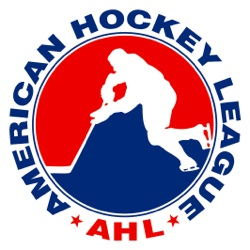The AHL has confirmed plans to add an expansion team for the 2018-19 season, a decision that is bound to affect the league on multiple levels.
As the annual Board of Governors meeting this week, league officials signed off on expansion plans. According to an announcement, the board “has made a commitment to an expansion applicant” that would allow the AHL to play at 31 teams starting with the 2018-19 season. That would give the AHL and NHL the same number of clubs, meaning that every NHL team can have its own affiliate.
The AHL will be closely watched in the near future, as the circuit did not disclose a specific market. We have noted in the past that the league could use expansion to bolster its ever-growing western footprint, mentioning cities such as Fresno, Reno, and Salt Lake City as possibilities, though each of those markets comes with its own set of questions.
More recently, there have been reports that the ECHL’s Colorado Eagles could move up to the AHL. Should they make that shift, the Eagles would look to become the new AHL affiliate of the Colorado Avalanche.
In that arrangement, there is a potential advantage for both clubs. The Eagles would be playing at a higher level of competition, while the Avalanche would shift their AHL affiliate closer to their home base in Denver. Currently, the Avalanche are partnered with the San Antonio Rampage in the AHL and the Loveland-based Eagles in ECHL. However, it has been stressed that the Eagles’ Budweiser Events Center will likely require upgrades if the club changes leagues.
As for how AHL expansion affects affiliations, it would leave the St. Louis Blues with the opportunity to pursue an exclusive partner. For the 2017-18 season, the Blues will supply players to the Chicago Wolves, but the Wolves are serving as the affiliate of the NHL’s expansion Vegas Golden Knights. This arrangement was confirmed in May, when the Golden Knights and Wolves announced a multiyear agreement.
In relation to the Blues, some discussion has focused on the possibility of Lamar Hunt Jr. owning a St. Louis-affiliated AHL team playing out of downtown Kansas City’s Sprint Center. Hunt, however, owns the ECHL’s Kansas City Mavericks, and that club has emphasized its commitment to both its current league and venue, Independence’s Silverstein Eye Centers Arena.
The decision by the AHL to pursue expansion is set to shakeup the league, and will lead to changes that affect the league’s geographical footprint and affiliation makeup. With some key decisions looming, however, it will take time to determine the exact fallout of AHL expansion.
RELATED STORIES: Budwesier Event Center Upgrades Could Lead to Loveland AHL; Las Vegas AHL Affiliate Plans Still in Early Stages; NHL Expansion Also Means Potential AHL Expansion;


